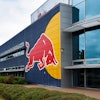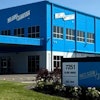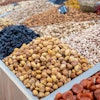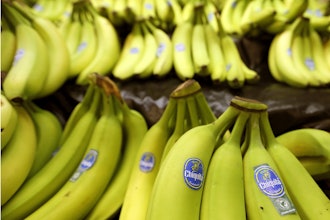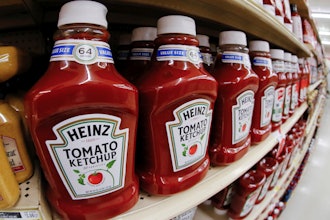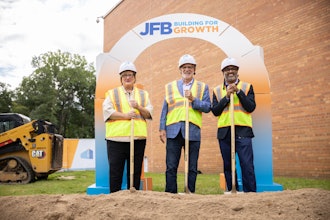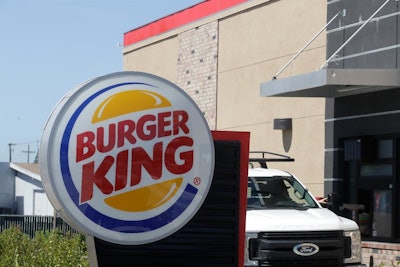
TORONTO (AP) — Restaurant Brands International, Burger King's parent, said Monday that a month-long test of the Impossible Whopper at 59 restaurants in St. Louis has gone so well that it will start testing it in additional markets. The company said it may expand sales nationally by the end of this year.
The sandwich is made with a plant-based burger from Impossible Foods, a Redwood City, Calif.-based startup. Burger King is the first fast food chain to test the Impossible burger, but other chains are offering plant-based burgers from competitors like Beyond Meat.
Chris Finazzo, president of Burger King's North American operations, said during an earnings conference call Monday that the Impossible Whopper was attracting new customers. He said the chain will sell the Impossible Whopper out nationally if reaction in other test markets "is a strong as it was in St. Louis."
"It's really difficult to distinguish between the Impossible Whopper and the original Whopper," he said.
Burger King wouldn't say which markets will get the sandwich next.
The news was a bright spot in otherwise disappointing first quarter earnings for Restaurant Brands, which said its first quarter net income fell 9% to $135 million on weaker same-store sales growth.
The Toronto-based company reported net income of 53 cents. Earnings, adjusted for non-recurring costs like fees to a restructuring consultant, came to 55 cents per share.
The results missed Wall Street expectations. The average estimate of eight analysts surveyed by Zacks Investment Research was for earnings of 59 cents per share.
The company blamed poor weather in Canada for a drop in same-store sales at Tim Hortons. Burger King's same-store sales grew 2% as the company tried to revive U.S. breakfast sales with a $5 monthly coffee subscription offer. Same-store sales were flat at Popeyes.
Restaurant Brands posted revenue of $1.27 billion in the period, beating analysts' forecasts.
Company shares fell 3% to $63.43 in morning trading.

